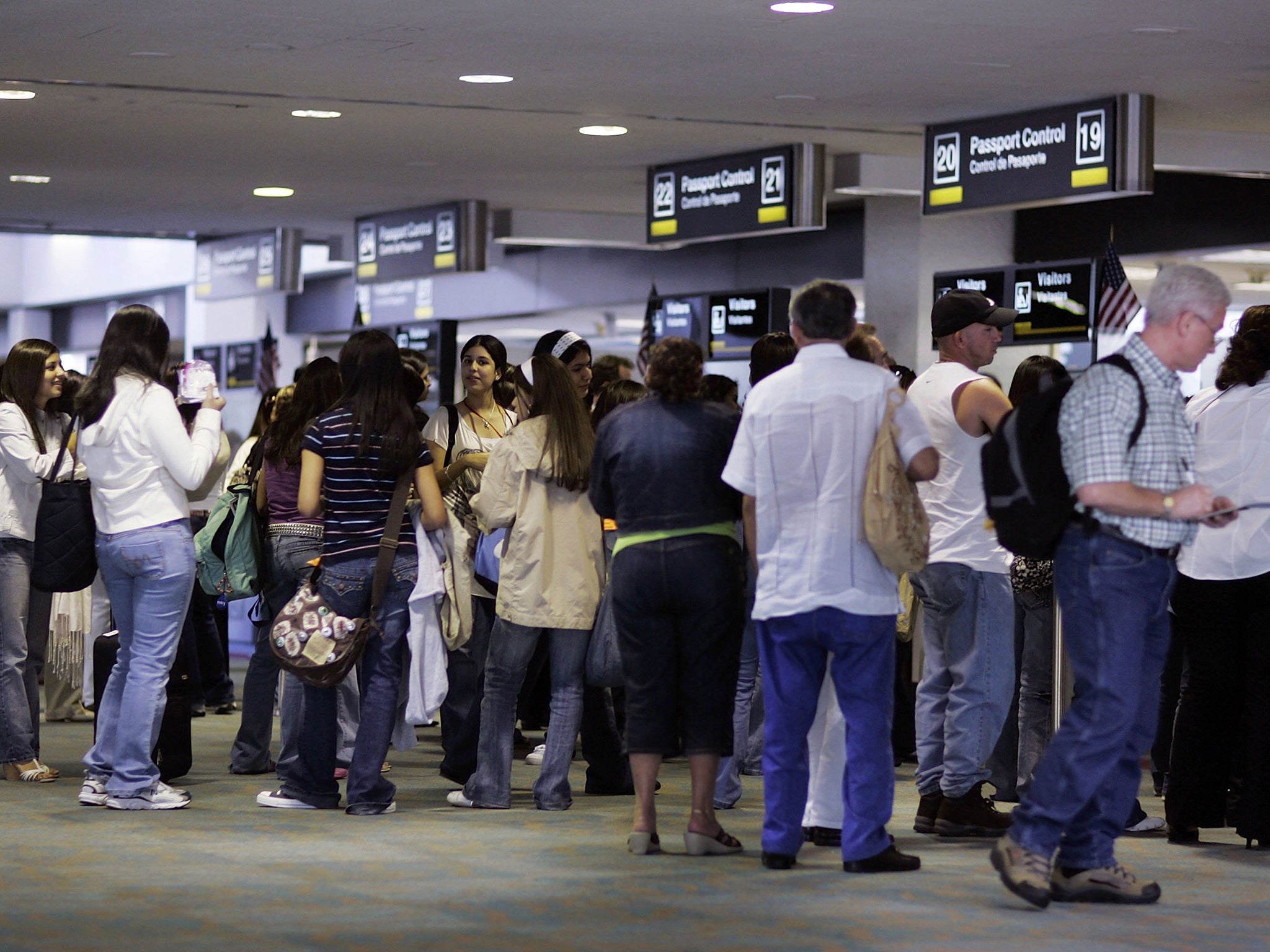Brexit: Amber Rudd announces 'implementation period' to delay promised curbs on EU immigration
Home Secretary bows to pressure to accept new immigration rules cannot be ready for Brexit Day

Your support helps us to tell the story
From reproductive rights to climate change to Big Tech, The Independent is on the ground when the story is developing. Whether it's investigating the financials of Elon Musk's pro-Trump PAC or producing our latest documentary, 'The A Word', which shines a light on the American women fighting for reproductive rights, we know how important it is to parse out the facts from the messaging.
At such a critical moment in US history, we need reporters on the ground. Your donation allows us to keep sending journalists to speak to both sides of the story.
The Independent is trusted by Americans across the entire political spectrum. And unlike many other quality news outlets, we choose not to lock Americans out of our reporting and analysis with paywalls. We believe quality journalism should be available to everyone, paid for by those who can afford it.
Your support makes all the difference.The flow of EU workers will continue for an “implementation period” after Brexit, the Home Secretary has announced, scrapping plans for tough new rules from March 2019.
In a bid to calm the fears of businesses, Amber Rudd has bowed to pressure to accept the Government cannot have a new immigration system ready for Brexit Day.
Instead, there will be an “implementation period when the UK leaves the EU, to ensure there is no “cliff edge” for employers”, the Home Office said. However, officials were unable to provide any detail of how the temporary rules will operate before a consultation in the autumn – which itself has been delayed from the summer.
Nevertheless, the Government – contrary to earlier reports – is still insisting the free movement of EU citizens will end when Britain leaves the EU, in March 2019. That pledge appears to rule out the UK adopting an “off-the-shelf” model during the transition period, as urged by business leaders worried about a looming worker shortage.
Both membership of the European Economic Area (EEA) and the European Free Trade Association (EFTA) involve accepting free movement.
Despite the confusion, the British Chambers of Commerce (BCC) welcomed the promise that a “cliff edge” will be avoided. “Amber Rudd has given EU nationals and their employers some much-needed reassurance, by signalling that any significant changes to the immigration rules for EU citizens will take place in an orderly fashion over time,” said Adam Marshall, its director general.
“Businesses need clear information to support their existing employees – and to know, right now, who they can hire with confidence over the coming years.”
Mr Marshall urged Ms Rudd to make decisions “based on firm evidence, input from employers, and a clear understanding of the different requirements facing each region and nation”.
However, the uncertainty is set to continue, after the Home Office revealed that a long-promised consultation on a new immigration system has been put back from the summer until the autumn.It is understood that ministers and officials have been unable to agree on the details of the proposals, one of the most crucial and controversial aspects of Brexit.
During and after the referendum campaign, Brexit supporters have repeatedly promised “control of our borders”, without being able to say how this will be achieved – or which migrants will be turned away. At her Lancaster House speech in January, Mrs May promised “control of the number of people who come to Britain from Europe”.
Instead, Ms Rudd has commissioned her independent advisers on migration to carry out “a detailed assessment of the role of EU nationals in the UK economy and society”.
The Migration Advisory Committee (MAC) will examine “the overall role of migration in the wider economy and how the UK’s immigration system should be aligned with a modern industrial strategy”.
Ms Rudd said: “Leaving the European Union gives us the opportunity to take control of immigration from the EU. We will ensure we continue to attract those who benefit us economically, socially and culturally. But, at the same time, our new immigration system will give us control of the volume of people coming here – giving the public confidence we are applying our own rules on who we want to come to the UK and helping us to bring down net migration to sustainable levels.”
The latest statistics show net long-term migration for EU citizens – the balance between arrivals and departures – was running at an estimated 133,000 last year, a fall of more than a quarter on 2015.
Overall international net migration, including from outside the EU, was also down at 248,000 in 2016, but well above the Government's target of below 100,000.
Join our commenting forum
Join thought-provoking conversations, follow other Independent readers and see their replies
Comments